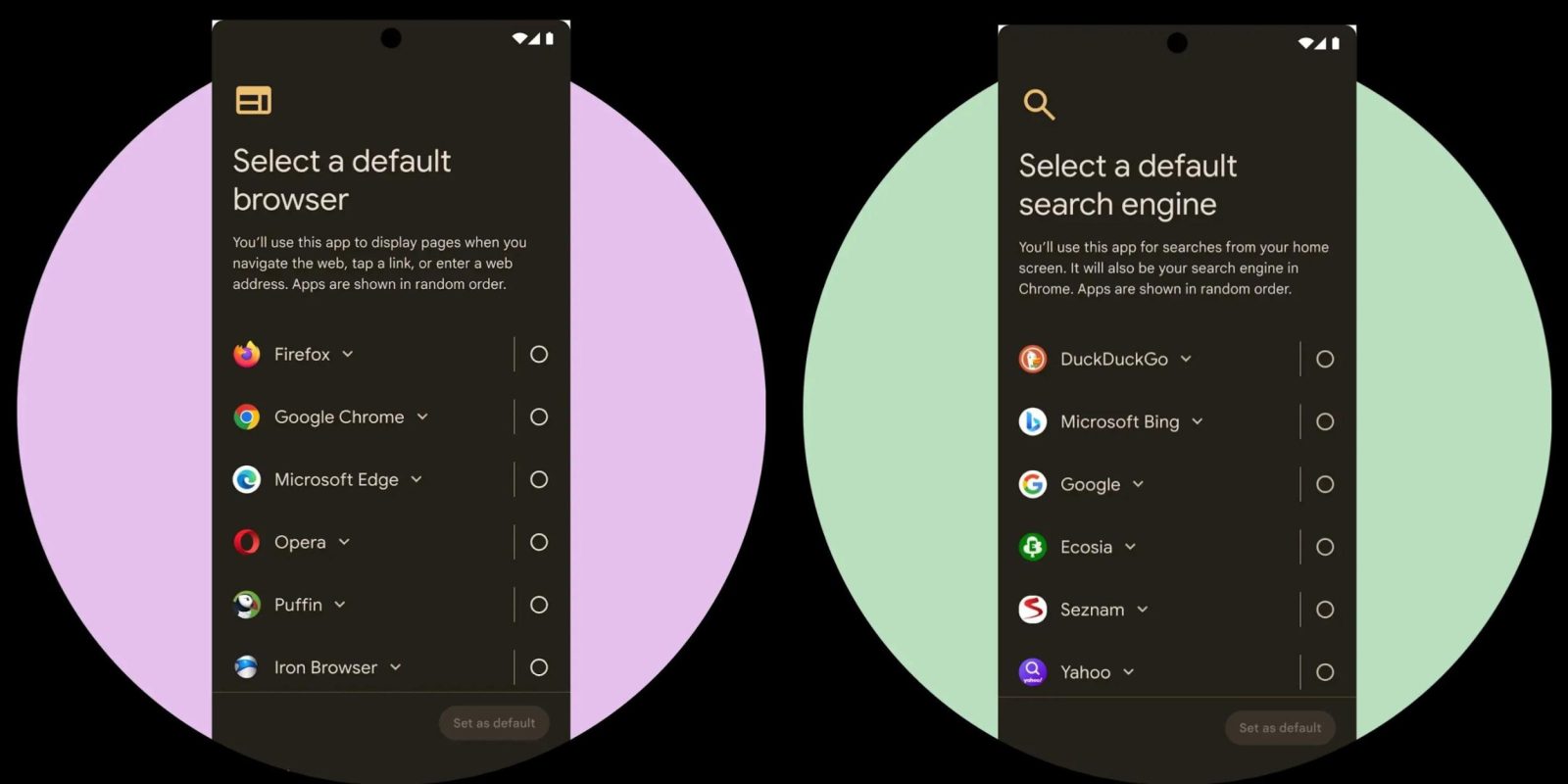
To comply with the European Union’s Digital Markets Act (DMA), Google is making a number of changes to Android, Chrome, and Search.
On the Android front, Google will show a new browser choice screen during initial device setup. This joins the existing search choice screen that Google introduced in 2019.
Meanwhile, the DMA brings a search choice screen to Google Chrome on non-Android platforms, like iOS and desktop.
A notable change to Google Search will see the removal of the Google Flights card, as well as other similar features, to make way for competing offerings.
- “…dedicated units that include a group of links to comparison sites from across the web, and query shortcuts at the top of the search page to help people refine their search, including by focusing results just on comparison sites.”
- “For categories like hotels, we will also start testing a dedicated space for comparison sites and direct suppliers to show more detailed individual results including images, star ratings and more.”
Meanwhile, European users will have the option to not have their data shared/linked across Google products: Search, YouTube, Ad services, Play Store, Chrome, Shopping, and Maps. This is used today to personalize content and ads. A consent banner in the coming weeks will ask people “whether some services can continue to share data for those purposes.”
You can choose to keep all these services linked, choose to have none of these services linked, or choose which of these individual services you want to keep linked.
Lastly, Google plans to introduce a Data Portability API for developers. It will also “continue to make investments in Google Takeout” and the Data Transfer Initiative.
These changes are in testing and/or rolling out with full availability by March to coincide with the new antitrust regulations going live.
FTC: We use income earning auto affiliate links. More.




Comments